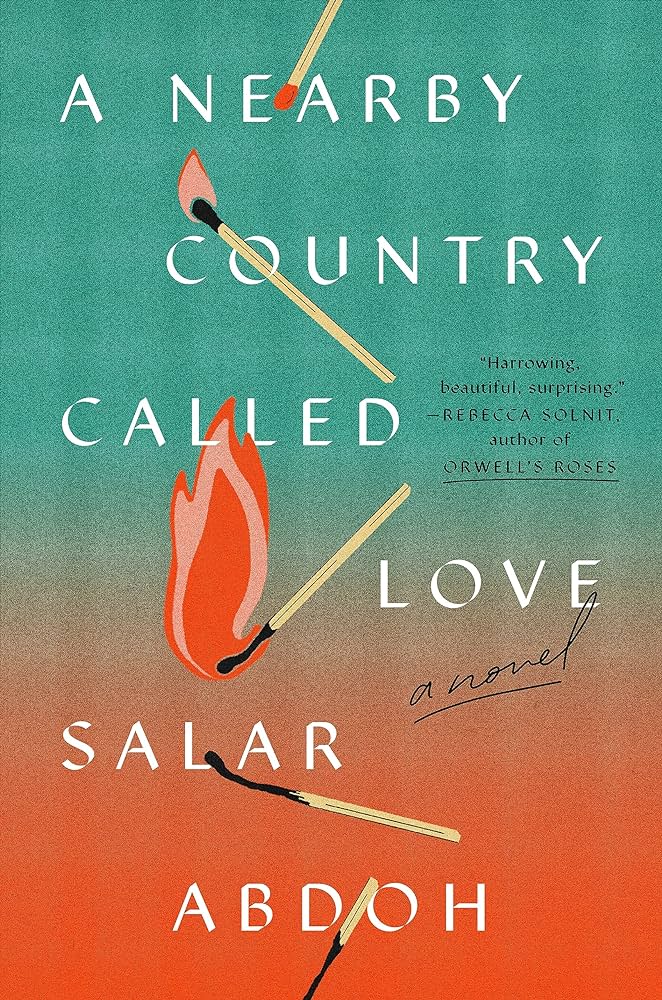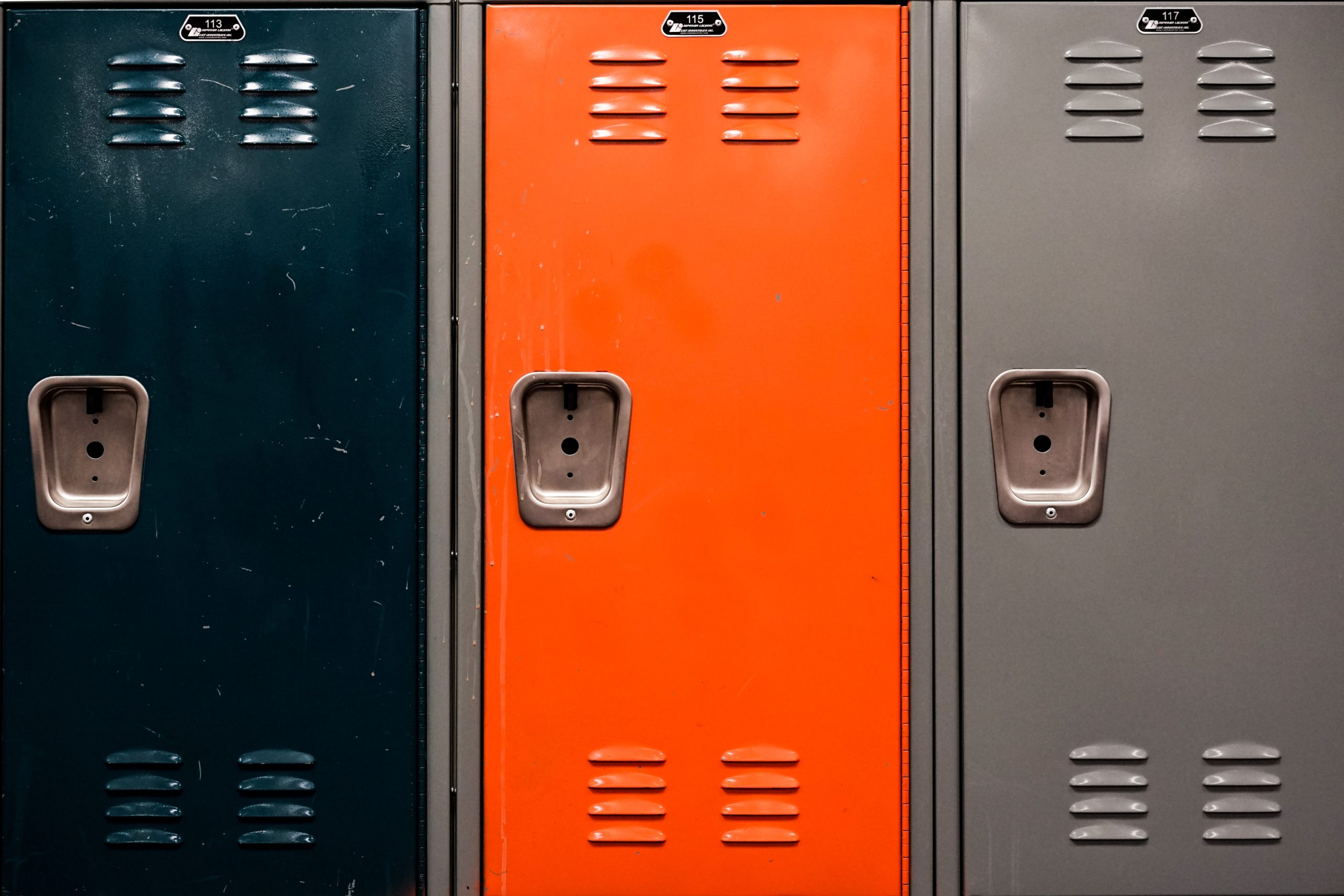Lit Mags
A Black Belt in Karate Doesn’t Make a Fair Father
An excerpt from A NEARBY COUNTRY CALLED LOVE by Salar Abdoh, recommended by Ladane Nasseri

Introduction by Ladane Nasseri
Years ago, I came across an anthology of short stories from and about the Iranian capital—a gritty, edgy, somewhat underground version of Tehran that I had experienced as a journalist but seldom seen on the page in English. I looked for its editor. It was Salar Abdoh. Later, after we corresponded via email and eventually met, I learned that Abdoh’s father was the founder of Tehran’s Bowling Abdoh club (where my parents, then in their wild 20s, had dated), and his brother was a renowned, queer avant-garde theater director.
It’s the ghosts of these two men that live inside the pages of A Nearby Country Called Love, and in the four corners of the Tehran apartment that Issa, the protagonist, returns to after years studying and working nightshifts in New York. Back home, Issa has become enamored with a poetess whose verses he finds puzzling, but whom he has never met. He sets out to find her. Instead, he finds himself entangled in a web of fresh liaisons and rotten relationships . Moving between family members and newfound friends, sometimes acting as a companion, other times as a mediator, Issa paces the city, from theater plays and private parties to narrow alleys and constructions sites, compelled to tend to the chaotic lives of others while exploring the edges of his own desire. Throughout these missions, taken on or self-assigned, Issa recalls the adolescent he once was and the two vastly different men—father and brother—who shaped his identity and his understanding of what a man should, or could, be.
Abdoh’s preoccupation with the themes of brotherhood and loyalty are apparent in much of his earlier work. This novel, his most personal to date, reflects both—but it is also an inquiry into manhood, and the loneliness (and sometimes delusion) that hollows men out. It’s a story that could be considered somber if it weren’t for the many humorous interludes, the splendid lines peppered with Persian slang that add texture to the dialogue of an already colorful set of characters. And just as Tehranis defy easy categorization, here too they display their capaciousness, their capriciousness. Like the housekeeper, a formidable, illiterate Azeri woman who, in her determination to protect Hashem, Issa’s older, queer brother, stands up to her employer (“Make my son cry and I will put a frying pan to your head, sir”). Or Issa’s father, old-school and macho to the bone, who is nevertheless the biggest backer of the housekeeper’s daughter, championing her and her education even as “he destroyed his firstborn because he preferred the theater, violin, and men.”
“Never forget where you came from,” Hashem once told an adolescent Issa. “Don’t turn your back on it.” Issa doesn’t—and neither does Abdoh. The result is a novel, which might be, above all, an homage to Tehran through the lives of its spectacularly scrappy or scrupulous residents. Residents who did not leave. Residents who could have stayed abroad and yet returned because, as one of the characters tells Issa, “Stay anywhere long enough, be with anyone long enough, and all the warts start to show. I may as well stay in my own country for that.”
– Ladane Nasseri
Journalist, Writer, and Middle East Correspondent
A Black Belt in Karate Doesn’t Make a Fair Father
Salar Abdoh
Share article
An excerpt from A Nearby Country Called Love by Salar Abdoh
He couldn’t bear going back to the apartment just yet. The apartment of the dead. When they’d been much younger he had shared the big bedroom with his older brother while their father took the small one in the back for himself. Issa recalled the bouts of barely controlled rage and weeping that ensued each time their old man thought his firstborn was not manly enough. It was a dance of endless humiliation between the two of them, starting in sixth grade for Hashem, when he came home from school one day and asked if he could take violin lessons. The old man, busy making a banana shake for Issa after having just taught an advanced karate class, raised his head and looked at Hashem, dumbstruck. Issa was almost two years younger and even then he understood something was not quite right with this picture. Within minutes they were downstairs at the dojo, where a few of the higher belts were still practicing. Hashem was made to punch the heavy bag until he was out of breath. Then the old man made him do the chicken walk a half dozen times around the dojo before putting him to spar with a teenage purple belt.
Hashem, who had always found excuses to avoid the dojo, stands there with a nervous smile on his face. Their father telling the other boy to attack. Attack what? Issa thinks to himself even then. Attack Hashem’s desire to learn the fucking violin? He is nine years old and has been going to the dojo religiously for about half a year and wants to protect his brother but has no idea where his loyalty lies. He worships the old man and imagines what their father is doing will somehow cure Hashem of something. He does not know what that something is yet, but when he sees the other boy throwing a halfhearted mawashigeri roundhouse kick to the side of Hashem’s face and pulling back at the last moment he wants to go out there and rip the boy’s face apart, even though the other boy is twice his size. Suddenly, the old man’s anger washes over them like wildfire. There are several other students in the dojo, standing mesmerized at this display of wrath by a sensei who has never before shown a lack of control in their presence. No one understands it. No one says a word. And then their father is raising his voice and warning the purple belt to either fight with his eldest son or never come back to the dojo again.
This time the boy attacks with a low maegeri front kick that catches Hashem in the inside thigh. The boy closes the distance and throws a lunge punch just above Hashem’s right eye. He does not follow through with more punches, though. He looks embarrassed. And then Issa is running at him. The moves he has learned in the last half year at the dojo are out the window, and all he knows to do is to try to wrestle the kid by going for his legs.
The teenage boy shoos him off.
“Touch my brother again I’ll kill you,” he hears himself shouting ineffectively.
Hashem is rolled into a ball on the floor, holding his face, crying softly. Their father stands there with glass eyes, surely astounded at the wickedness he has just caused and looking as if he has just woken up from a bad dream. The purple belt bows and retreats.
The image stopped cold for Issa right there. He could not recall what had happened next. There was no talk of violin lessons ever again. Nor did their father ever lose his cool at the dojo like that again. But this was the last time Hashem stepped into that space. Something had been broken. And something had been built—a tall wall between them, for the remainder of the abbreviated lives of these two men, both of whom Issa had adored and who hated each other.
Then came the change in their bedroom arrangements. Issa had to move into the small bedroom by himself, and their father took the big bedroom and made Hashem his roommate. It was, in a way, the absolute worst punishment he could have inflicted on the two boys, taking away Hashem’s privacy and at the same time forcing Issa, the younger brother, to have his. And the next few years turned into a cold war punctuated with bouts of seasonal brutality that ended in Hashem crying in one corner of the apartment and their father feeling remorse in another. At school, Hashem was beloved and, unlike Issa, a perfect student. The more their father heard praise from school about Hashem and his grades, the angrier he seemed to get, and he devised yet more tests of manhood, which Hashem failed at spectacularly. One day, the old man decided Hashem had to learn how to ride a motorcycle; it ended in the bike falling over Hashem and the hot exhaust scalding half his leg. More than once, the three of them had to go hiking in the mountains north of the city and learn to stake tents and shoot bows and arrows. Another failure. If Hashem didn’t like karate, how about learning to box or wrestle or do judo? It was one thing after another, a desperate quicksand of man-making that always ended in disappointment and heartache. As time went by, Issa moved up through the ranks at the dojo and his belt colors changed. During the silent mokuso meditation intervals at the beginning and end of practice, he’d often wonder what their father was thinking. Did he think about Hashem then? Was his mind completely blank? Did he ever think about the men who still thought him an enemy of the revolution?
It was one thing after another, a desperate quicksand of man-making that always ended in disappointment and heartache.
He had loved this man. And sometimes he hadn’t. More than anything, he had wanted his father to love Hashem. Or at the very least cease trying to turn the older son into a version of himself. The wash of bad memories didn’t fade with age but rather lingered and just grew more stale. Like the time after the old man put Hashem in a vicious chokehold up there in the mountains. Back at the apartment Issa had taken the small picture of the old man from his military days and ripped it in half. For days he’d hidden the photograph, ridden with guilt and fear that their father would find it. He did find it, years later. It was taped together but still showed the rip down the middle. The old man put the photo away and didn’t ask about it, no doubt thinking it was Hashem who had wanted to destroy his mug and not the younger son.
What a relief when Hashem finally left home. As if a huge boulder that the three of them had been carrying was at last lifted. From his second year of high school, Hashem had refused to cohabit in the same room with the old man. To make peace, Issa had given him the small bedroom back and took to the sofa in the living room. Many nights he’d just go to the dojo and sleep there, leaving the old man and his brother to their silent revulsions. The stale scent of sweaty gi uniforms would always linger on his skin from those nights at the dojo. He had imagined even back then that the sourness was that of men’s odium of one another. All men. It permeated everything, unwashable.
He walked aimlessly for a long time. The fasting month, Ramadan, would be coming around, and soon it would be summer. The previous summer had been unbearably hot, and tiny, white airborne creatures had invaded the city in swarms. They got into your mouth and hair and eyes, they stuck to car windshields and hung from trees. No one was sure what they were or where they had come from. It was a version of the day of the locusts but lasting an entire season in scorching heat. Sometimes he wondered if Hashem and their old man weren’t better off gone from this world, or at least this city. Some of the old man’s best martial arts students had eventually ended up running their own dojos. A few were famous now. Others notorious. But times had changed; nowadays it was the full-contact competitions that drew crowds. Few were interested in the old discipline of a traditional karateka. And who could blame them?
He sat for a while on the benches at Hasanabad Square until weekend crowds started emerging from the metro. Then he followed them to the junction of 30-Tir Street and Imam Khomeini Boulevard. They had recently cobblestoned this part of the city and set out food kiosks. Street musicians jammed the sidewalks, and a huge i <3 tehran neon sign shone off a wall of the Malek National Library. Hashem had loved going to all sorts of libraries when they were kids. He was also an avid book thief. For a long time the books he read went completely past Issa. One time Hashem’s desk he’d seen a book titled Of Mice and Men. He was still in elementary school, and the title in Persian—Moosh-haa va Adam-haa—had really repulsed him. It seemed sinister to his young mind, even if he did not yet know what sinister was. He questioned the rationality of his brother’s universe on these occasions. But he was also a soldier, there to defend Hashem, even if he did not quite know from whom and why. But as the years passed and Hashem’s library expanded, he began to take a new interest in his brother’s books, and their variety eventually became his own entry point into literature. By now theater had taken over Hashem’s world. He was about to finish high school with dazzling grades, and their father could no longer force him into the dojo to humiliate him for loving an art form, as he had done with the violin. There was one book, Issa recalled, that never left his backpack: Shakespeare Our Contemporary. Issa thinking: I know who Shakespeare is. We read about him in some class. But why “our contemporary”? It seemed Hashem might always be trying to provoke their father with books out of the range of the old military man’s understanding, and frankly Issa’s understanding as well. It would take several years of studying at the university and fully catching up to Hashem’s reading list before he began to get an inkling—a library with a shelf full of thin books by a man with hair like an eraser, Samuel Beckett; a book of poems by W. H. Auden, with the deeply lined face of a man whose gaze was a mixture of defiance and wisdom; and of course Hashem’s film heroes with exotic, sexy, and excessively beautiful European names: Bresson, Pasolini, Fassbinder. “Look after my books,” Hashem had asked him when he was finally leaving home. And he had, religiously, even getting a shelf built for them by hand. These were the very books that their father often thought of as the culprits stirring his firstborn toward that unreachable place where only shame lay.
It seemed Hashem might always be trying to provoke their father with books out of the range of the old military man’s understanding.
One day he’d come home to see the old man boxing all the books.
“Pedar, what are you doing?”
“I’m taking them to the bookshops along the university and selling them or giving them away. Maybe I’ll throw them in the sewer. I don’t know yet.”
“But they’re not yours to do that with.”
The old man had looked up at Issa. “What did you say?”
“Those books are my amanat. They are in my care. A man has a duty not to betray an amanat. You know that.”
“These books turned your brother kooni. You understand, son?”
“Books don’t turn a person into one thing or another. And so what if they did? I’ve read most of those books by now. They’re really mine.”
“Yes, and I can tell you’re turning into a homo like your brother.”
It was the first time, and last, that in so many words he’d told his father to go fuck himself.
They remained there like two combatants. Issa stood his ground. “I’m not betraying my brother like you betrayed your son.”
The old man came at him then. His yokogeri side-thrust kick purposefully missing him by barely an inch but denting the wall with a loud boom. The old man could have crushed him. But Issa still did not budge. And the old man did not pursue the subject again. The books stayed.









